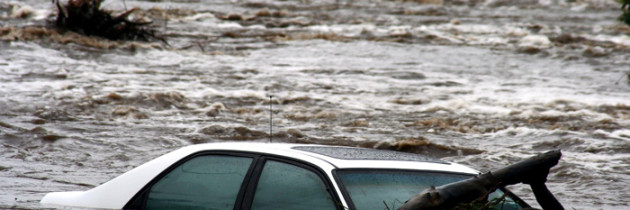UK floods: in defence of the Environment Agency
The flooding crisis has shone a spotlight on much that the government would prefer to remain hidden – not least the coalition’s quiet slashing of the Environment Agency budget. Despite advice in the wake of the 2007 floods to increase expenditure on flood defences, the government relied on its traditional mistrust of the public sector and the experts within it, and used the blunt instrument of cash limits. Prime minister David Cameron said money would be “no object” to dealing with the immediate impact of the floods and has finally announced that specialist flood defence jobs will not be cut in the short term. But he has refused to halt job losses after the floods have receded or provide any new money for future flood defence schemes. This is short sighted.
Managing the environment is a complex matter. There is no one size fits all solution to what is a dynamic, interactive set of factors where cause and effect need to be carefully assessed.
We need a holistic, long-term approach to the effects of climate change based on rigorous science. Simplistic accusations serve no-one and nothing. Yet in blaming the Environment Agency advice for failures in flood defences, communities secretary Eric Pickles wrote off a whole swathe of specialists, whose expertise has served government and the UK well.
Moreover, funding decisions are made by the Treasury and Defra – both on how much the Agency receives and how it can be spent. The real measure is not whether this government is spending more than the last, but whether it is spending enough to meet the ever increasing environmental challenges.
And patently it is not. The number of agency staff is being reduced from 13,700 in 2009, to 9,700 by October 2014. Around 1,150 were transferred out to Natural Resources Wales, but the remainder – some 23% – will simply be cut. Even if this is done over a longer period the agency will be much smaller, and vital work will not get done.
Crisis work on flood defences and protection can be prioritised, but equally vital work on forecasting, mapping and modelling to scope the size and nature of future problems will suffer – as will other areas like waste disposal and conversion, waste crime, pollution management, planning advice and community engagement.
Those who criticise the Agency’s size, must not realise that none of its smaller international counterparts deal with flood defence and protection. At the moment some 4,500 Agency employees are engaged full-time on this work, a third of whom have been drafted in from other functions.
The weather cannot be controlled. But its effects can be foreseen and managed by the range of specialist organisations working on the environment. At issue in this crisis is the role and value of these public bodies and the experts who work for them. So far the government seems bent on undermining one and ignoring the other.
Some immediate steps the government could take
1. Do not decide on a permanently smaller Environment Agency until the lessons from the flooding, and the implications for the future, have been considered.
2. Double investment in flood defences by 2035.
3. Commit to the strategy on flood and coastal risk management first published by the Environment Agency in 2009.
4. Ensure cross-government resources and expertise are deployed and build on existing good practice such as the Flood Forecasting Centre.
5. Better co-ordinate statements so that all those affected are clear about the strategy and immediate priorities and resist the political temptation to scapegoat the staff of the Environment Agency.
Fonte: theguardian.com



